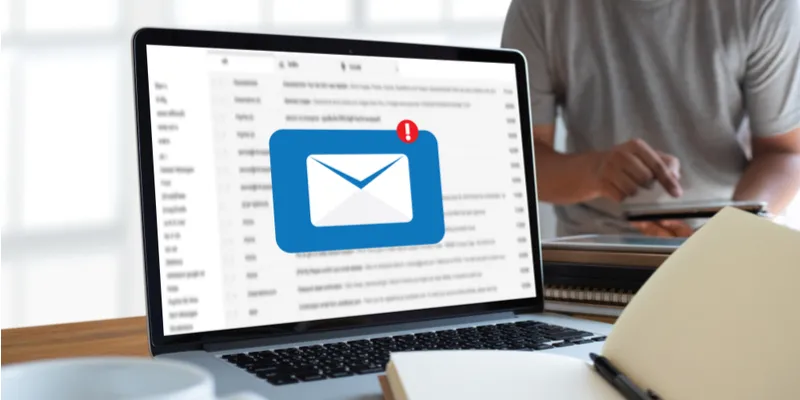Correct, convincing email communication is key to millennials career
Business communication is important for all of us. While business communication itself can include many aspects within it, there is arguably one area that stands front and centre as a vital tool to conduct businesses of all kinds –email!

With the increasing popularity of text messages, WhatsApp and other social media platforms, email may not be considered important by the millennials (people born between the early 80s to late mid-2000s).
However, email gains importance in the workplace. If millennials can master the aspect of business writing, they will give themselves the best possible chance to make significant headway in their lives and professional careers.
Before we jump to list the tips for writing great emails, it might be worth understanding why emails have assumed the kind of importance they have.
- First, because emails are admissible as proof in a court of law in most countries, an email record of any communication, discussion, negotiation, arrangement, and understanding can serve as an undeniable record for the same, crucial while conducting business.
- We are living in a world where business is being transacted across borders, often times without even physically meeting. An email then becomes the ‘First impression’ of an individual, a professional, or of a company. It must have the desired, impressive effect.
- Finally, emails are used as the go-to tool when we are pitching any proposal. As such, they must seem convincing, while being concise.
So here I’d like to share some tips on email etiquette that will hopefully standardise the process, and help millennials write succinct, globally accepted polite yet convincing emails.
Make time, respond to emails
It is vital to make time to respond to emails. One can appreciate the sheer numbers with which our inboxes are inundated. But if we plan just a tad bit better and set aside that half hour to skim through our email accounts, regularly; not only will you alleviate the ‘1,000 unread emails’ situation, but also not offend the many people who would have assumed that you’ve given them the royal snub!
The right start and finish
Second, greetings and salutations that seem to cause much confusion can be simplified to a great extent. Ending emails with a simple ‘best’ or ‘regards’, followed by your name is globally accepted and perfectly fine.
Similarly, to start emails with ‘Dear’, even if it is an official email, is legitimate. If one needs to be formal, one can always say ‘Dear Mr X’.
Reply, no matter what!
Let’s say you get an email requesting you to speak at a function. You know already for a number of reasons, you cannot, or do not want to accept the invitation. But reply, and be courteous. It never hurt to thank someone or to express gratitude. If you were to reply saying, “I am most grateful that you thought of me to speak at your event. I regrettably have to decline due to prior commitments.” These two short sentences that will have taken you a minute to write, will leave a wonderful impression in the minds of the person/organisation that reached out to you, despite your turning them down.
Complete the communication loop
This time, let us say that you have written to someone asking for something. To your son’s principal for extra holidays on account of an extended family vacation that is planned. Even if the principal’s reply is curt and declines your request, and inside you are fuming; it will only do good for you to say, “Thank you for considering my request and responding. I appreciate your having taken the time.” Not only will this dissipate your own anger, but it will also set a great example of your familial values to the principal, and in turn, hold your son in good stead at school.
Virtual anger
Avoid using upper-case/capital letters. This is considered ANGER! It’s really that simple! It is applying all the spoken courtesies that we so regularly exercise in our everyday lives while interacting with the world, that need to be briefly translated into a few kind words of response over emails. The world will be a better place for it. You will not be nearly as annoyed when you hear that notification because keeping up with your email communication in the proper etiquette will ensure that ‘you’ve got mail’, is never bothersome again! Besides, isn’t it time we started collecting some good karma online as well?
Keep subject line short
The ‘subject’ tab in our emails must be kept short, to a maximum of three words wherever possible. Let us say you are writing to pitch your business idea for funding, rather than saying ‘New Idea For Web Chatting App’, simply saying ‘New Chatting App’ conveys the same message, that too in a short number of words that will not spill-over to the next page of the recipient’s inbox and vanish. Further, inside the email, you could write below the greeting, a ‘Regarding’ sentence such as:
REG: New Idea For Web Chatting App Looking For Investment
This will give the recipient a chance to gather the entire gist without having to read the whole email. Even if the recipient immediately rejects the email based on the ‘investment request’ at the very outset, he/she will remember you favourably for not having wasted their time and for having been honest and forthcoming right at the beginning.
Strategise and pre-empt
We should try and structure our emails in a manner that reduces back and forth between the writer and the recipient. Equally important is to give the impression that what we are proposing is ‘too good to pass up’ as an opportunity for the recipient, and that we ‘understand the recipient’s point of view’. In order to achieve these things, I have found that it is a great idea to use the following strategy:
Two to three Compelling Reasons to Say YES (to the writer’s proposal), which are big advantages from the recipient’s point of view. In order to zero in on these, one needs to get into the shoes of the recipient and think from their perspective.
Similarly, we need to pre-empt at least 1-2 problems/concerns/doubts that might come into the recipient’s mind upon reading the proposal. And suggest pre-emptive solutions to those concerns in the first email communication itself.
Following the above strategies and basic etiquette will ensure that email communication is smoother, more effective, and quite frankly, lesser.
Millennials conduct most business communication virtually, and in order to achieve an optimal level of desired results, email writing has become the cornerstone of business writing.
(Disclaimer: The views and opinions expressed in this article are those of the author and do not necessarily reflect the views of YourStory.)







